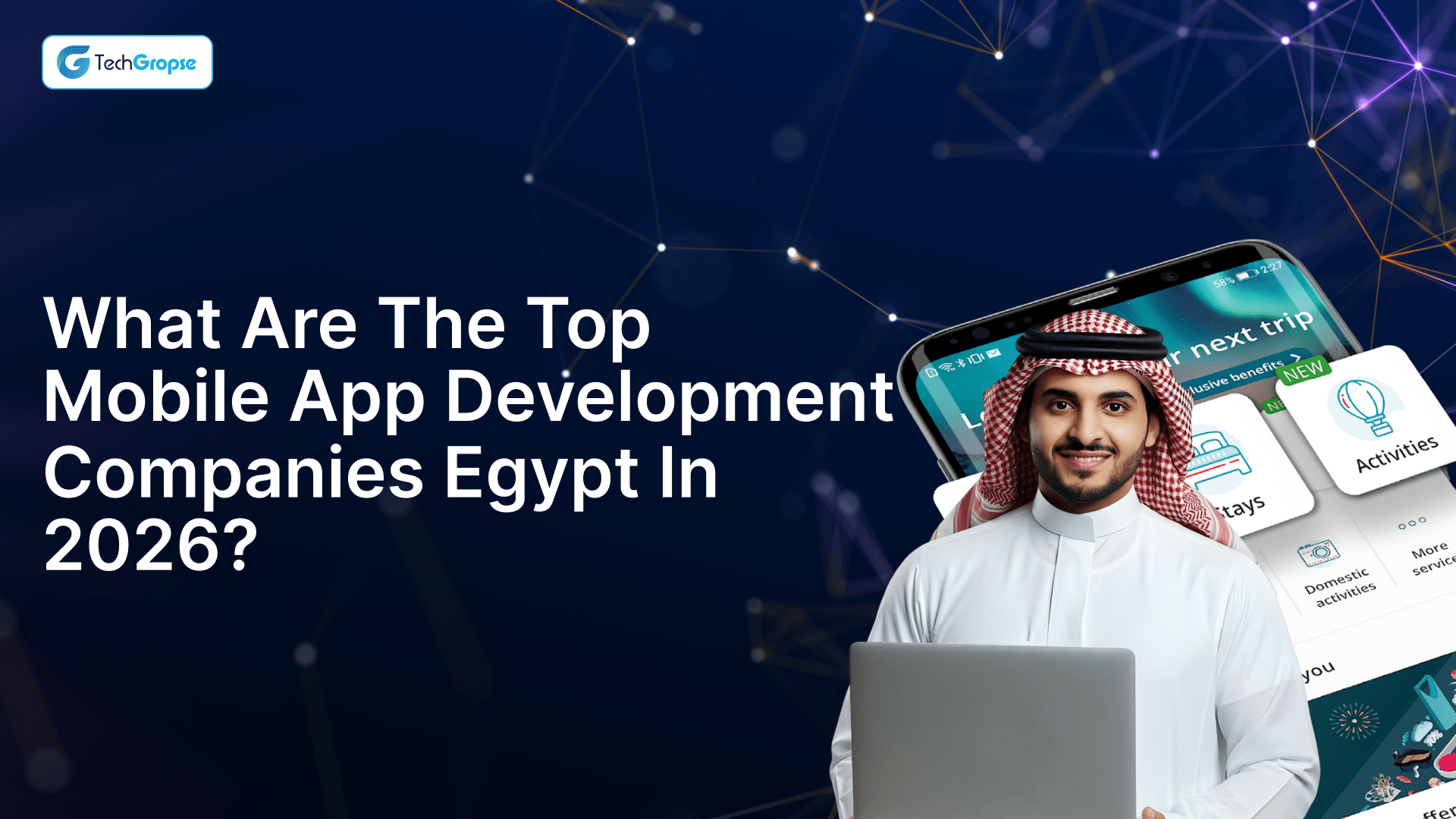Why are businesses focusing on Government App Development in UAE? Fatima, a resident in Dubai, wakes up to a notification reminding her of her visa renewal. With a few taps on her smartphone, she accesses a government app, uploads the necessary documents, and completes the process—all before her morning coffee. No queues, no paperwork, no stress.
This isn’t a futuristic dream. iIt is the present reality in the United Arab Emirates. In the bustling heart of Dubai, where skyscrapers pierce the clouds and innovation is a daily mantra, a quiet revolution is underway.
The UAE government has embraced digital transformation with open arms. It is now aiming to provide its citizens and residents with efficient, accessible, and secure services. From healthcare to transportation, education to legal affairs, mobile applications are becoming the primary interface between the government and its people.
But behind this seamless user experience lies a complex web of development processes, stringent security protocols, and strict compliance with regulatory standards. Developing a government app in the UAE involves an intricate balance between user-centric design, data protection, and legal obligations.
If you’re a government official, or an enthusiastic entrepreneur, this exclusive guide will provide valuable insights into the process of government app development in UAE. Here, We’ll explore
- Guidelines set forth by regulatory bodies
- Security measures essential for protecting sensitive data
- Compliance requirements that ensure transparency and trust
By the end of this guide you will learn many crucial things about successful government app development. So why wait then? Let’s get started
Why Are Government Entities in the UAE Investing in Mobile App Development?

Government entities from all over the Emirates are investing in mobile app development more and more to ensure faster, safer, and more personal access to public services. From visa renewals to utility payments, healthcare booking to legal documentation, these apps are taking over as the new front desks of public administration.
According to Research And Markets, the UAE Digital Transformation Market size is expected to reach a value of US$ 2.23 billion by the end of 2029, growing at a CAGR of 15.09%. The UAE government is tremendously opening its doors for digital transformation across all government service arenas by leveraging mobile apps and digital platforms. But why are government entities investing in the development of mobile apps in the UAE at all? Let’s identify what they really have to gain.
Do You Know?
In 2024,
UAE federal government entities processed 173.7 million digital transactions,
Government apps downloaded 26.3 million times.
The UAE government now offers 1,419 digital services, including 195 priority services.
The government achieved a 91% satisfaction rate among over 57 million digital users
(Source: Arabian Business)
1. Citizen-Centric Service via Mobile Apps
Today, mobile apps have become the interface of empathy. There is an app for reporting a power outage, applying for housing grants, or tracking a school bus. By bringing services within reach of every resident, the UAE entities have gone beyond mere passive bureaucracy to active enablement. This saves one time, cuts down friction, and creates trust over the long term.
2. Digitalization of Health, Transport, Utilities & Public Safety
Public health. Road safety. Electricity. These are the systems people depend on to live. And the government well knows that in crisis or everyday routine, the apps are often the first-fastest point of contact.
On the healthcare side, digital apps now cater for anything from booking doctor visits to viewing lab results. On the transport side, applications such as the RTA offer real-time route changes, pay fares, and even AI-based traffic monitoring. Utilities? Here, no paper is issued for this bill, and no phone call on a disruptive unknown! The apps alert the disruptions, pay for their bills, and report their issues instantly.
3. Market Size and Budget Allocations for GovTech in UAE/Saudi
Saudi Arabia announced over $1.78 billion worth of digital transformation investments in Governodies this very 2024 alone, a considerable chunk earmarked for government services. The UAE, already a front-runner in GovTech servitudes, has doubled down through programs like Smart Dubai and Digital Government Strategy 2025. They allocated multi-year budgets for cloud infrastructure and AI integration and citizen-facing digital platforms.
All these projects are essentially strategic visioning: to become global examples of agile, data-smart, and citizen-first governance. In both countries, developing mobile applications is never considered an IT project. It is instead considered akin to nation-level infrastructure, such as roads, bridges, and energy grids.
4. Physical Infrastructure Alone Is Not Enough Anymore
In more than a few instances, the UAE has made itself known for tangible developments: record-breaking towers, immaculate roads, and world-class airports. But somewhere along the line in recent years, the various government entities realized a critical thing.
In an almost hyper connected society, efficiency is no longer measured in kilometers but in clicks. And apps stand as the fastest route from intent to action. A good public experience begins when a resident can pay a utility bill in 20 seconds or book a PCR test without standing in line.
5. To Fulfill the UAE Vision of Seamless, Smart Governance
From Smart Dubai to UAE Centennial 2071, national ambitions are steeped in digital innovation at scale. Mobile apps allow governments to meet people where they already are: on their devices. Mobile apps present a better road to walk. With biometric logins and real-time threat detection managed by tightly governed data flows, government agencies can deliver public services that aren’t compromised on control.
Must Read: Cost of Mobile App Development in Dubai, UAE [2025 Edition]
Common Types of Government Apps in the UAE
In a country where vision is not merely stated but delivered, mobile apps are ambulating between the public institutions and the people. The government entities in the UAE are now making them for interaction, autonomy, and trust. The range of government apps extends from personal safety to public utilities, very much echoing the core-national-level priorities. Some common yet very crucial types of government applications are being developed across the UAE.

1. e-Government Service Apps
These apps simplify access to vital identity and immigration services.
2. Smart City Apps
Built to optimize urban living, these apps manage real-time parking, waste pickups, and traffic flows.
3. Public Utility Apps
Across-service platforms for utility bills and fine payments.
4. Regulatory & Licensing Apps
These apps streamline business and municipal compliance.
5. Security & Emergency Apps
Reporting of incidents, requesting emergency aid, or fast-tracking access to authorities.
6. Transport & Mobility Apps
Providing live updates, route planning, and fare payment to keep public transport seamless.
7. Healthcare & Wellness Apps
Bringing essential healthcare services directly to residents’ fingertips.
8. Citizen Engagement & Feedback Apps
Facilitates the exchange of information and feedback to the system.
Government App Development Process: Understanding The Lifecycle
The user experience is smooth and is engineered by the lifecycle considerations of compliance, accountability, and the actual needs of citizens. From the moment the purpose is set up to building, the development process takes its course in a waterfall approach. But unlike typical commercial apps, government platforms must meet higher stakes.
It involves high-end data security, zero downtime tolerance, and interfaces that serve millions, not just markets. This lifecycle aims to make what is developed future-proof, trusted, and citizen-first by design. Being a leading mobile app development company in UAE, we know the steps this process comprises. We touch upon a few to give you an overview.
Phase 1: Requirement and Scope Definition
This is the initial and primary stage in the entire government app development process. It consists of defining purpose, explicitly. Government stakeholders, IT consultants, and department heads all arrive at an understanding of what the app must do, whom it must serve, and what constitutes success.
The compliance mandates, performance expectations, integration needs, and citizen pain points are called out so that a functional blueprint may be constructed. Without this clarity of strategy, the development is subject to guesswork.
Phase 2: Shortlisting of Vendors and Evaluation of Applications
Once the vision is lucid, the search for the right tech partner begins. To attract qualified vendors, such as professional mobile app development companies in UAE or other development agencies, a government RFP (Request for Proposal) is issued.
They send it to those who are ideally conversant with GovTech, have seriously robust security credentials, and know UAE’s regulatory environment inside and out. Proposals are judged by more than just price. For instance, technical ability, demonstrated experience within public sector projects, scalability, and timelines for delivery, all carry heavy weight.
Phase 3: Designing and Prototyping
Designers and UX strategists begin determining the look and feel of the app with phase prototyping wireframes into clickable ones that simulate actual interactions. This allows stakeholders to imagine a finished product before even a single line of production code is written. The feedback loops with government users and internal testers ensure that the UI is intuitive, easily accessible, and purposely designed to cater to multitudes of citizen needs.
Phase 4: Secure Development and Testing
The most technical phase is upon the app once it has been approved from the design point of view. Mobile app developers systematically create the architecture of the application using secured frameworks in coding. They will comply with cybersecurity laws and data residency requirements of the UAE.
APIs, databases, third-party integrations, and admin dashboards are developed at this stage with an absolute zero tolerance for security loopholes. At the same time, QA engineers run their batteries of tests long before any proposal for public deployment can really be looked into.
Phase 5: Deployment, Hosting, and Continual Maintenance
After the successful development, the deployment of the app starts. As soon as it is launched, the app is hosted on infrastructure that complies with various regulations (most often government-approved cloud environments like G42 or Etisalat). However, launching is not the end of the development journey. There is a continuous cycle for ever-improving which includes continued monitoring with new versions, incident reporting, and performance analysis.
Also Read: How to Choose the Best App Development Company in the UAE
Government App Development Cost in UAE

On average, depending on the app’s scope, complexity, and integrations, costs range anywhere from AED 200,000 to AED 1 million and up. However, the cost of building a government application in UAE is measured by various important criteria and key factors that affect the cost of government app development in UAE:
- App Complexity & Features
- Security & Compliance Requirements
- Integration with Existing Systems
- Multilingual & Accessibility Support
- UI/UX Design Standards
- Vendor Experience & Engagement Model
- Post-Launch Maintenance & SLA Coverage
Cost Breakdown of Government App Development in UAE
| Type of Government App | Description | Estimated Cost Range (AED) |
|---|---|---|
| e-Government Service Apps | Core service apps (Emirates ID, visa, permits, complaints | 200,000 – 400,000 |
| Smart City Apps | Apps for waste management, traffic control, smart parking | 400,000 – 1.2M |
| Public Utility Apps | DEWA, SEWA, Abu Dhabi Police–style apps for payments, alerts | 300,000 – 500,00 |
| Healthcare & Wellness Apps | Integrated with hospitals, labs, AI-based health monitoring, | 250,000 – 1M+ |
| Transport & Mobility Platforms | Real-time GPS tracking, RTA integrations, ticketing, | 400,000 – 1.5M |
| Regulatory & Licensing Apps | Business registrations, trade licenses, municipal approvals | 400,000 – 1.2M |
| Citizen Engagement Platforms | Polls, surveys, feedback apps | 350,000 – 900,000 |
| Emergency & Security Apps | Disaster alerts, SOS features | 250,000 –450,000 |
| By App Size | Cost Range |
|---|---|
| Small-scale (Single Function or Department) | 100,000 – 200,000 |
| Mid-scale (Cross-Department, Public-Facing) | 300,000 – 500,000 |
| Enterprise-grade (Nationwide / High-Traffic) | 1.5M – 2M+ |
| With Advanced Smart Governance Features | Cost Range |
|---|---|
| Biometric Authentication (Face/Fingerprint) | 100,000 – 300,000 |
| AI & Predictive Analytics | 200,000 – 500,000 |
| Blockchain for Record-Keeping | 300,000 – 600,000 |
Mandatory Guidelines for Government Apps in the UAE

Developing and launching a government app for the UAE is not a straightforward task. Before it launches, there are some certain essential guidelines for government apps which the app must comply with.
National Cybersecurity Strategy (NESA)
The National Electronic Security Authority (NESA) framework is the core cybersecurity framework for UAE government mobile apps. It sets out the stringent controls from the National Cybersecurity Strategy of the UAE.
It is basically the cybersecurity domain of all federal and local entities. Apps processing governmental or public sector data must be compliant with National Information Assurance Standards (NIAS), thereby incorporating confidentiality, integrity, and availability provisions from the very inception.
Data Hosting Regulations (Local Hosting Mandate)
As per UAE statute, all sensitive or government-related app data must be hosted locally within the national boundaries. The local hosting mandate covers cloud-hosting or any form of on-premise solution. Developers and agencies have to ensure that their apps are hosted on UAE-based data centers which are certified and recognized by the concerned authorities such as TRA (now TDRA). It is illegal to use foreign cloud services without bestowing prior clearance in this regard.
User Authentication Standards (UAE Pass Integration)
The government apps in the UAE are expected to use UAE Pass, the digital ID of the country, to maintain a unified secured and trusted login for all its users. UAE Pass Instills user authentication using biometrics, digital certificates, and blockchain-backed ID verification. For any developers, integration is now the right choice from a compliance viewpoint and accessing public sector APIs.
Encryption, Data Masking & Secure API Use
Strong algorithms for encryption, approved by the government, like AES-256, shall be used to protect data in transit and data at rest. Before the implementation of concealment or tokenization, the sensitive fields especially those dealing with PII, financial data, or national IDs also need to be masked or tokenized. The APIs must be secured through OAuth 2.0, rate-limiting, and whitelisting. Letting themselves know that an attack is underway and being prepared to meet it at every level.
Telecommunications and Digital Government Regulatory Authority (TDRA)
No government app makes it to production without clearing the lens of the TDRA. The UAE’s key body overseeing all ICT frameworks and digital governance. TDRA issues clear directives on app design, hosting infrastructure,cybersecurity protocols, and even the preferred cloud providers for federal deployment. Whether it’s an app for traffic control or trade licensing, TDRA compliance is step one, not a checkpoint later.
Compliance with GDPR-style UAE Data Protection Law
The UAE Personal Data Protection Law (PDPL), enacted under Federal Decree-Law No. 45 of 2021, is almost identical to data protection regimes around the globe, such as Europe’s GDPR. It gives due consideration to user consent, purpose limitation, data minimization, and right to erasure. Mobile app developers and businesses must incorporate compliance from the UX and backend level.
Any data collected shall have a legal basis for processing and comes with a clear explanation to data subjects on data protection through encryption. Leaving the PDPL aside, a developer will be subjected to heavy penalties in respect of fines and restrictions on continuing operations, to say nothing of reputational backlash. This is very important mainly when the app centers on consumers or features a massive dataset.
Cross-Border Data Transfer Restrictions
The transfer of personal or sensitive data outside the borders of the UAE is subjected to stringent conditions. Data transfer across borders shall only occur to jurisdictions deemed by the Data Office of the UAE to provide adequate protection.
If not determined to be of adequate measure, the data exporter and importer shall ensure a suitable safeguard through binding corporate rules, standard contractual clauses, or user consent with full transparency of risk involved. For mobile app development companies and businesses, this usually means they steer clear of foreign-hosted APIs or CDNs unless they have contractual safeguards in place.
Best Practices for UAE Government App UI/UX Design – An Overview
Designing for UAE government apps demands secure, inclusive, and culturally respectful digital experiences. It must align with the national service excellence frameworks such as UAE Government UX Guidelines and the Digital Government Strategy 2025. Whether dealing with a citizen service portal or an internal ministry dashboard, there are diverse practices in UI/UX design that need to be complied with while developing government apps:
- Follow the UAE Government UX Guidelines
- Support Bilingual UI (Arabic & English)
- Be Accessibility-First (WCAG 2.1 Compliance)
- Keep Navigation Clear and Action-Oriented
- Guarantee Smooth Integration with the UAE Pass
- Have Data Privacy at the Forefront
- Mobile-First and Responsive Layouts
- Respect Culture and Sensitivities
- Minimize Cognitive Load
Case Studies: Successful Government Apps in UAE

The digital transformation is a reality which is reflected in the top governmental apps in UAE. If one is to muse about designing an app for the UAE government, numerous apps and platforms have already proved what citizen services can really encompass. Here are four top examples illustrating how the mobile-first strategy is indeed enhancing public service delivery in various sectors:
1. MOI UAE App (Ministry of Interior)
Security and public service in its full ambit, from payment for traffic fines to visa inquiries and emergency SOS services, all provided via one secure interface.
2. DubaiNow by Smart Dubai
The country’s first unified city services app—allowing residents to access 130+ smart services of over 30 government and private entities, ranging from bill payments to visa renewals.
3. TAMM (Abu Dhabi Unified Services)
The all-in-one digital gateway to Abu Dhabi government services, enabling residents and businesses to take care of all their documentation, licensing, and other needs—without ever having to set foot in an office.
4. Dubai Police & DEWA Smart Services
The two paramount standalone apps in Dubai give hyper-streamlined access to law enforcement and utility services—right from reporting crimes to viewing electricity usage analytics.
How TechGropse Can Help You in Government App Development in UAE?
TechGropse is among the top mobile app development companies in UAE when it comes to government app development in UAE. We know that it is not just about the features. The app needs to be compliant, usable, highly secure, and citizen-centric. This is where we really add value.
Our team is deeply familiar with local requirements-from NESA and UAE Data Protection Law to FedNet hosting requirements and requirements for integration with UAE Pass. Our designers are fully aware of the nuances of Arabic UI/UX design and also of the best practices of mobile app development.
This is where we incorporate application design paired with scalable architecture for future-proofing and ease of use, from utility services to citywide engagement platforms to portals for very specific departments.
Final Thoughts
Government app development in the UAE is a national priority shaped by policy, precision, and purpose. With smart city ambitions tied to Vision 2031 and digital inclusion as a non-negotiable, mobile apps are now the operating system of public service delivery.
But launching a government-grade app demands deep familiarity with regulatory nuance, cultural expectations, and design principles that actually work at scale.
So whether you’re building the next DubaiNow or digitizing a niche service vertical partnering with an experienced mobile app development company in UAE that holds proven expertise in government app development in UAE.
FAQs
The cost could be anything between AED 200,000 and over AED 1 million. At the same time, the cost varies with respect to complexity, compliance requirements (such as NESA, data hosting), and number of integrations (UAE Pass, other APIs), and scale. Security requirements and localization are also major considerations in deciding the price.
The mandatory ones include end-to-end encryption, multi-factor authentication (preferably via UAE Pass), secure APIs, data masking, and penetration testing on a routine basis. All the cybersecurity local standards and those from NESA must be adhered to without exception.
You are looking at anywhere between 4 to 12 months for a fully compliant, citizen-ready app, but it depends on the scope of the project, the time taken for approvals, security audits, and integrations performed by the third parties.
Several bodies take up oversight functions-ranging from the TDRA (Telecommunications and Digital Government Regulatory Authority) to NESA and other emirate-specific authorities such as Smart Dubai or ADDA (Abu Dhabi Digital Authority).
Yes—but usually in partnership with a local entity that holds a license. Foreign entities must meet stringent requirements on compliance, data residency, and often Arabic localization to be eligible.
Most projects conduct RFP or tender-based procurement with a focus on compliance, technical capabilities, having done government work before, security readiness, and hosting and operations based in the UAE.















































































